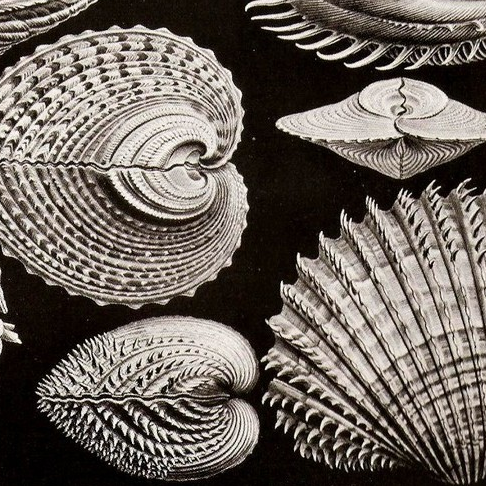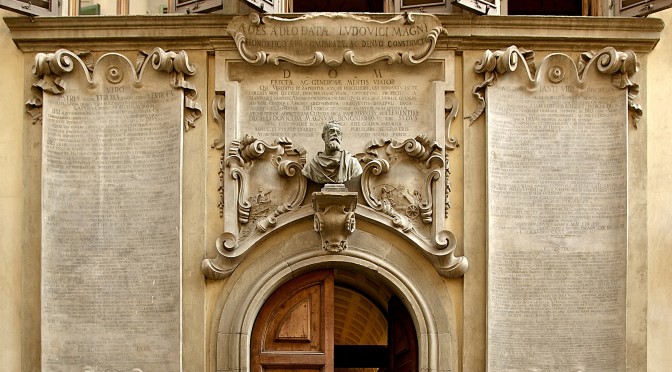In 1611 an unknown novice recited a poem titled “Sonnet on the Death of the King Henry the Great, and on the Discovery of Some New Planets, or Stars Wandering Around Jupiter, Made this Year by Galileo Galilei, Famous Mathematician of the Grand Duke of Florence”.[1] The occasion was the three-day commemoration of the death of King Henry IV, and the location the Jesuit ‘Collège Royal Henri IV’ in La Flèche, France.[2] To us present-day readers, it may seem as a long shot to present the dead King Henry as having been elevated to the ‘Heaven of Jupiter’, where ‘he now shines / To serve to mortals as a heavenly torch.’[3] But to the writer of this poem the connection seems to have been not only fair, but even obvious. In other words, the sonnet thus shows how only one year after Galileo’s publication of the Sidereus Nuncius, or Starry Messenger (Florence, March 1610), his discoveries had already become famous enough to place them on a par with that most important other big event of 1610, the death of the French King.
The fact that Galileo already enjoyed widespread renown in the early seventeenth century is further confirmed by the epithet reserved for him: the ‘Famous Mathematician of the Grand Duke of Florence’. Now, in this case it is a byname surely meant to be positive; a supportive title meant to enhance Galileo’s reputation and the credibility of his discoveries. Yet in other cases, for instance in Nicolas Fabri de Peiresc’s response to the Sidereus Nuncius the epithet ‘Florentine’ is decidedly negative: it is followed by the remark that Galileo, as all Florentines, must necessarily be ‘shrewd’ and cannot be trusted. Here, it is thus used to deny Galileo and his discoveries credibility. It is especially interesting to note that Fabri de Peiresc would later become one of Galileo’s most fervent supporters, who, among other things, pleaded with Urban VIII for Galileo’s release from Arcetri after the trial of 1633. With what kind of terms did he describe Galileo then?
In my recently started PhD-project, I will focus on precisely these kinds of descriptions used for Galileo. I will ask what terms were used to describe Galileo, by what kind of people and in what kind of media. In my research, I will also ask why certain groups used different kinds of epithets and what motivated them to write about Galileo – either positively or negatively: what made them want to ‘make or break’ him? How, and how often did they explicitly refer to his scholarly activities and achievements? Did this change over time? Furthermore, I will ask which epithets ‘stuck’ and how they spread: which groups were most influential in establishing Galileo’s reputation throughout Europe, and what impact did this have on the reception and success of his ideas?
By answering these questions I of course hope to make a modest contribution to the ever ongoing debates on Galileo. Yet, paradoxically, in my project the main focus will actually move away from Galileo himself, as I will concentrate on the writings of others. Because whereas there have been investigations regarding Galileo’s own efforts to build a favorable reputation for himself, the efforts and motives of others – of those around him, but also of people whom he had never met or spoken to – have not been sufficiently taken into account. And yet they were the ones to bestow fame: without them, Galileo’s name and discoveries might well have been forgotten many years ago. So, with my project I aim to shift the traditional focus and arrive at a more complete picture of how reputations came about. I also hope to link ongoing debates within the field of reputation studies to those on the social history of science: what was the role of fame as a legitimation mechanism for new ideas and discoveries? Did more fame automatically lead to more credit as a scholar, or could it perhaps also bring Galileo in a more vulnerable position, as rumors about the controversy of his work inspired ever more, and more severe, criticism? Or, in other words: was it true, for Galileo, that ‘There is only thing in the world worse than being talked about, and that is not being talked about?[4]
o-o-o
Anna-Luna Post has just started work on her PhD project ‘Claiming Fame for Galileo: The Mechanics of Reputation and its Impact in Early Modern Europe’. The project was funded by NWO’s program Promoties in de Geesteswetenschappen and will be supervised by Arnoud Visser and Floris Cohen, at Utrecht University.
[1] “Sur la mort du Roy Henry le Grand et sur la decouverte de quelques nouvelles planettes ou estoiles errantes autour de Jupiter, faicte l’année d’icelle par Galilée, celèbre mathématicien du duc de Florence.’’ Published in In Anniversarium Henrici Magni obitus diem Lacrymae Collegii Flexiensis Regii S.J. (La Flèche 1611).
[2] Massimo Bucciantini, Michele Camerota, Franco Giudice, Galileo’s Telescope. A European Story (Cambridge, Mass. 2015) 161-162.
[3] Bucciantini et al, Telescope 162.
[4] Oscar Wilde, The Picture of Dorian Gray.

